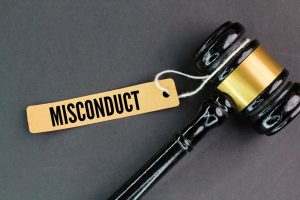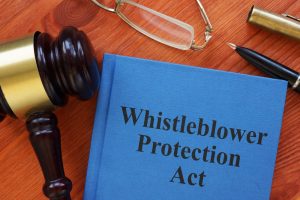Whistleblowing is a vital mechanism for ensuring transparency and accountability within the federal government. Federal employees who come forward to expose wrongdoing or illegal activity play a crucial role in safeguarding the integrity of government operations. However, these courageous actions can sometimes lead to retaliation, including the revocation of security clearances. The government must balance its legitimate interest in protecting national security with the need to protect the rights of whistleblowers. Revoking security clearances as a form of retaliation against whistleblowers not only undermines the principles of accountability and transparency but also violates legal protections designed to shield whistleblowers from such actions.
The Role of Security Clearances

Security clearances are essential for many federal employees, granting them access to classified information necessary to perform their duties. The process for obtaining and maintaining a security clearance involves a thorough investigation into the individual’s background, character, and reliability. While the government has broad discretion to grant or revoke security clearances based on national security concerns, this power must not be misused to retaliate against employees who lawfully expose wrongdoing.
When a security clearance is revoked in retaliation for whistleblowing, the consequences can be severe. Employees may lose their jobs, face career derailment, and suffer significant personal and financial hardships. More importantly, retaliatory revocations send a chilling message to other potential whistleblowers, discouraging them from coming forward and allowing misconduct to go unchecked.
The Legal Protections for Whistleblowers
Federal law provides robust protections for whistleblowers. The Whistleblower Protection Act (WPA) and other related statutes are designed to shield federal employees from retaliation when they report waste, fraud, abuse, or other illegal activities within the government. These laws prohibit adverse actions, such as termination, demotion, or the revocation of security clearances, when they are motivated by an employee’s whistleblowing activities.
However, the intersection of security clearance revocations and whistleblower protections presents a complex legal landscape. Courts have historically been reluctant to intervene in security clearance decisions due to national security concerns, as established in cases like Department of the Navy v. Egan (1988). Nonetheless, recent cases have signaled a shift, recognizing that the government’s discretion is not absolute, particularly when constitutional or statutory rights are at stake.
Circumstances Where Security Clearance Revocations May Constitute Retaliation
Revoking a security clearance as retaliation for whistleblowing violates both the spirit and letter of the law. Here are several examples of circumstances where security clearance revocations may raise concerns about retaliation:

- Reporting Misconduct: If a federal employee reports misconduct, such as illegal actions, wasteful spending, or violations of law, and subsequently has their security clearance revoked, this may indicate retaliatory motives. The timing and context of the revocation are critical factors in determining whether it constitutes unlawful retaliation.
- Exposing Corruption: Employees who expose corruption or unethical behavior within their agencies are particularly vulnerable to retaliation. Revoking a clearance in response to such disclosures undermines the integrity of the whistleblowing process and may violate the WPA.
- Challenging Inefficiency or Abuse: Whistleblowers who challenge inefficiency, abuse of authority, or mismanagement within their agencies may find their security clearances revoked as a punitive measure. Such actions are not only illegal but also detrimental to government accountability.
- Revealing National Security Concerns: Ironically, federal employees who expose national security concerns, such as breaches or vulnerabilities, may have their clearances revoked under the pretext of safeguarding national security. This tactic is particularly insidious, as it uses the guise of security to retaliate against those who seek to protect it.
- Timing of Revocation: If a security clearance revocation closely follows a whistleblowing disclosure, this may be strong evidence of retaliation. The proximity in timing between the whistleblowing activity and the adverse action is a key element in establishing a retaliatory motive.
The Legal Landscape: Navigating Retaliatory Revocations
While security clearance decisions are typically afforded significant deference by courts, there is growing recognition that this deference has limits, particularly when retaliation is at play. Recent cases, such as Garcia v. Pompeo and Haleem v. United States Department of Defense, demonstrate that courts are increasingly willing to scrutinize security clearance revocations when constitutional rights or statutory protections, such as those afforded to whistleblowers, are implicated.
In Garcia v. Pompeo, the D.C. Circuit allowed claims related to a security clearance suspension to proceed, emphasizing that while the government has broad discretion in clearance matters, this discretion is not immune from judicial review when constitutional or statutory violations are alleged. Similarly, in Haleem v. United States Department of Defense, the court recognized the need to ensure that security clearance decisions are not used as tools for retaliation, particularly when issues of discrimination or constitutional rights are involved.
What to Do If Your Security Clearance Is Revoked Due to Whistleblowing
If your security clearance has been revoked in retaliation for whistleblowing, it is crucial to take immediate action:

- Seek Legal Counsel: An experienced attorney can help you navigate the complex legal landscape of security clearance revocations and whistleblower protections. They can assess your case, gather evidence, and build a strong defense against retaliatory actions.
- Document Everything: Keep detailed records of your whistleblowing activities, the timing of your security clearance revocation, and any communications or actions taken by your employer. This documentation is essential in proving that the revocation was retaliatory.
- File a Whistleblower Complaint: If you believe that your security clearance was revoked as retaliation for whistleblowing, you may have grounds to file a complaint under the Whistleblower Protection Act or other applicable statutes. Your attorney can guide you through this process.
- Prepare for a Challenging Process: Challenging a retaliatory security clearance revocation can be a lengthy and complex process, requiring persistence and determination. However, with the right legal representation, you can protect your rights and hold the government accountable.
Conclusion
Security clearance revocations that target whistleblowers undermine the principles of transparency, accountability, and fairness that are fundamental to our government. While national security is critical, it must not be used as a pretext to silence those who expose wrongdoing. The government must be held accountable when it uses security clearances as tools for retaliation.
At the National Security Law Firm, we are committed to protecting whistleblowers and ensuring that their rights are upheld. If you are facing a security clearance revocation due to your whistleblowing activities, Ready to Take the Next Step? Let’s Talk. Contact the National Security Law Firm today to discuss your case and explore your options.
Contact us today to schedule a consultation at https://www.nationalsecuritylawfirm.com/book-consult-now/ or call us at 202-600-4996.
